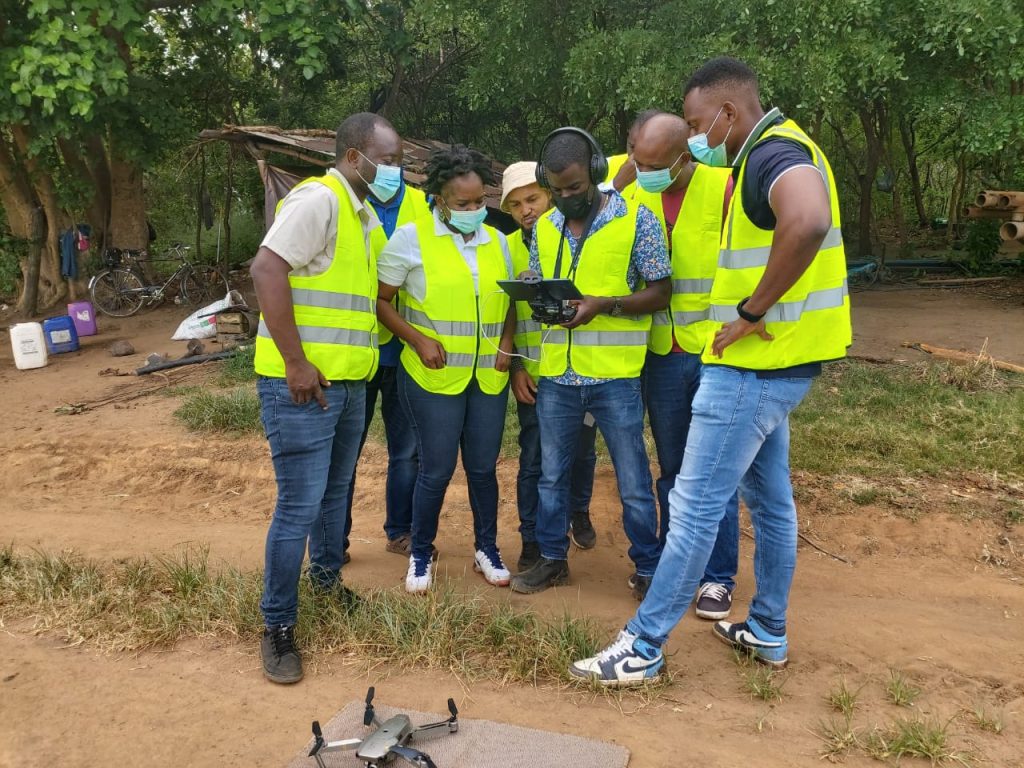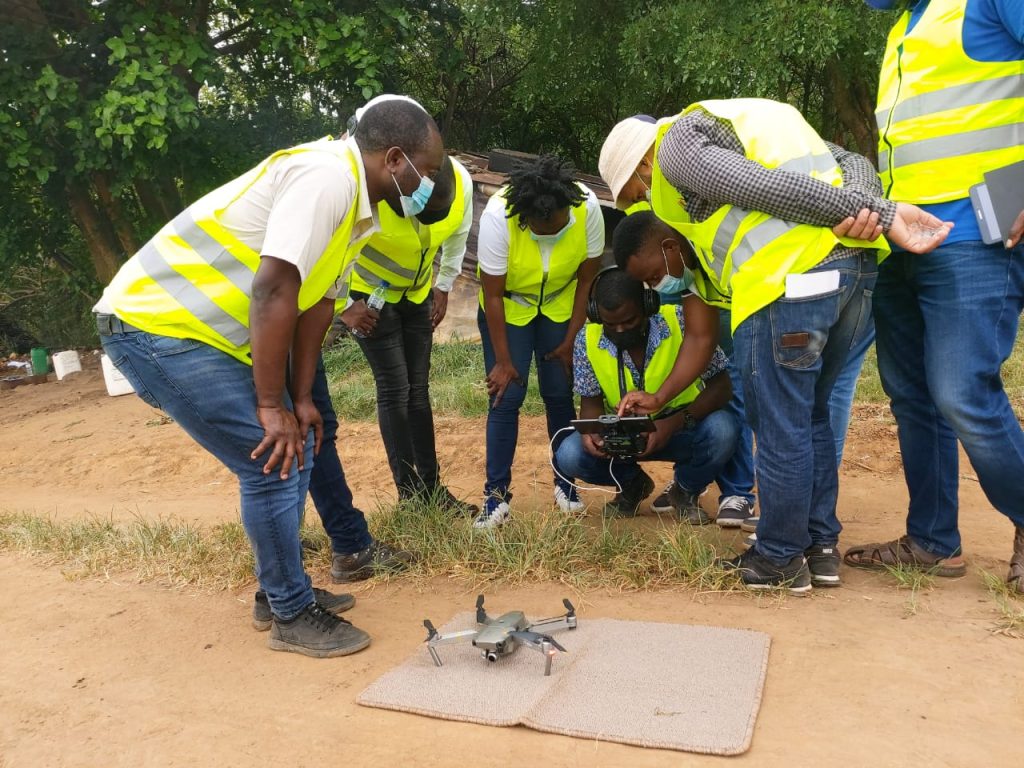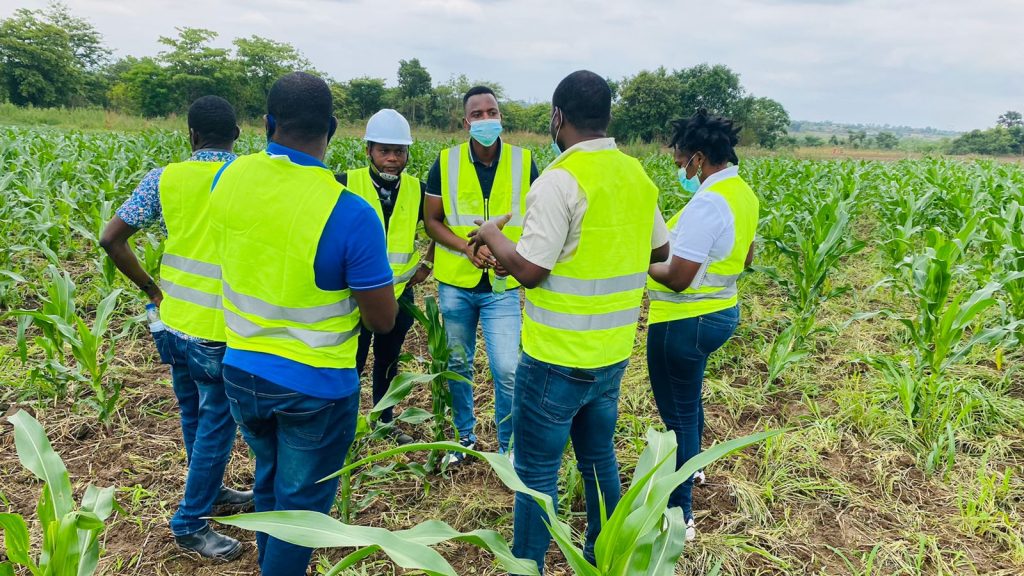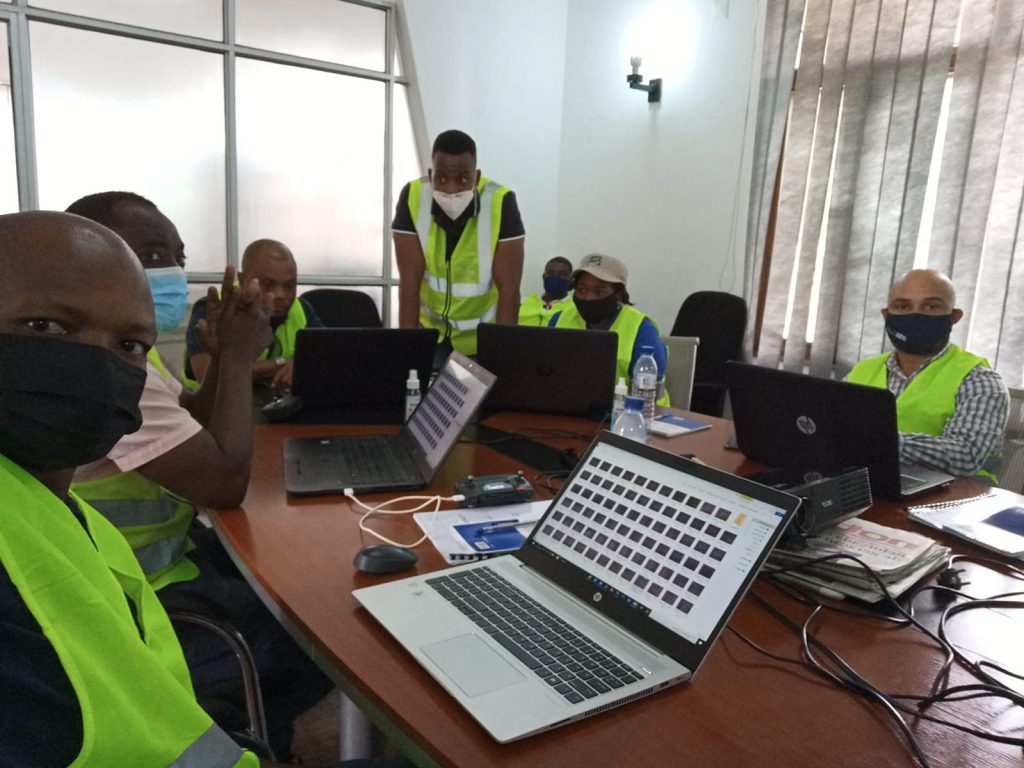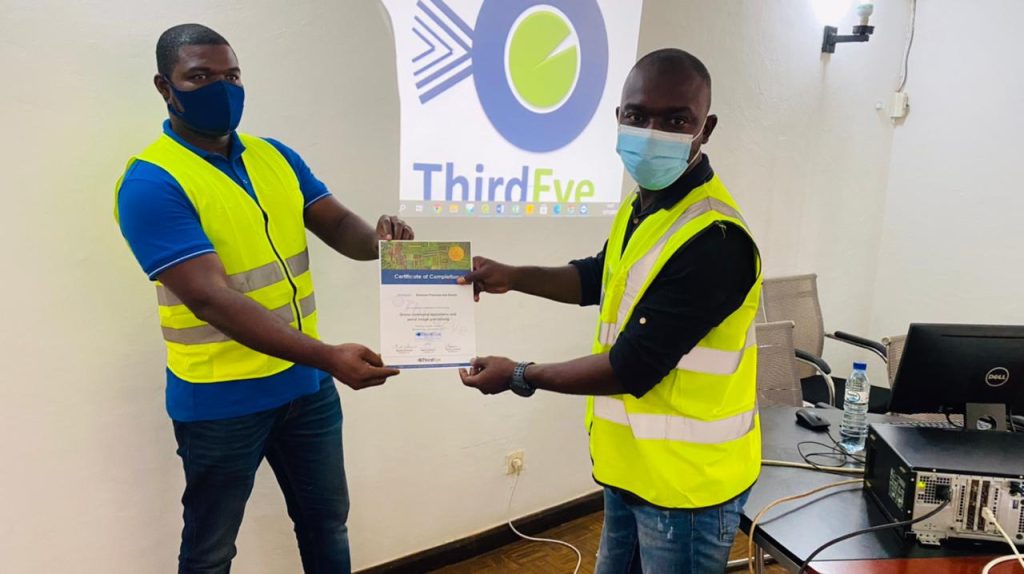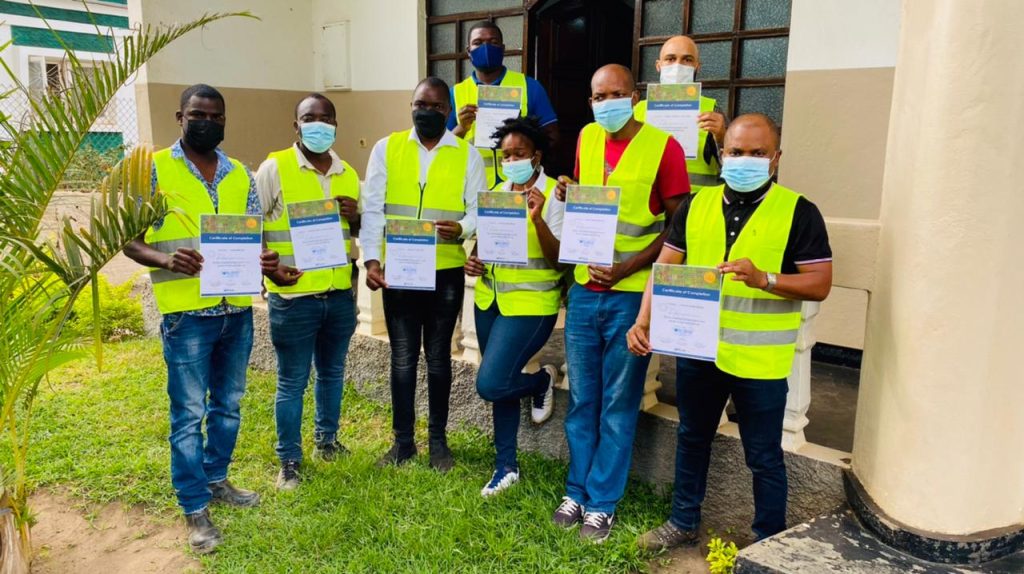Last week FutureWater assisted ThirdEye Limitada (Central Mozambique) in providing a training on the use of drones for agricultural purposes for NCBA CLUSA technicians. The trainings and technical assistance for the NCBA CLUSA staff are provided in collaboration with project partner HiView (The Netherlands). Eight technicians of NCBA CLUSA were trained in using flying sensors (drones) for agricultural purposes. The 5-day training consisted of making manual and automatic flights, processing the images into vegetation status maps and interpreting these.
The camera mounted on the drone makes use of the near-infrared (NIR) wavelength to detect stressed conditions in the vegetation. Maps of the vegetation status are used in the field (with an app) to determine the causes of the stressed conditions: water shortage, nutrient shortage, pests or diseases, etc. This information provides the NCBA CLUSA technical staff and extension workers with relevant spatial information to assist their work in providing tailored information to local farmers. FutureWater and NCBA CLUSA also successfully collaborated in a project in 2019 in which flying sensor activities were incorporated in NCBA CLUSA’s PROMAC II project as a M&E indicator of the practices and as an innovative technology for providing technical staff with spatial information on crop development.
ThirdEye Limitada is a leading flying sensor company, based in Chimoio, Mozambique, that was established in 2018 as part of FutureWater’s APSAN-Vale project. Ever since, the company has provided its innovative drone monitoring service to thousands of farmers across central Mozambique. The company is using the latest technology and is steadily growing in operators, number of farmers, revenue and geographical areas.
NCBA CLUSA works to build a better world and a more inclusive economy that empowers people to contribute to shared prosperity and well being for themselves and future generations. NCBA CLUSA engages, partners with and empowers people everywhere to have a greater say in their futures and more equitable access to sustainable jobs and opportunities. They achieve this vision through collaborative partnerships in development, advocacy, public awareness and thought leadership.
